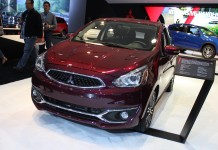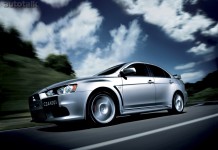Japan’s Mitsubishi Motors and France’s Peugeot Citroen Wednesday scrapped an ambitious capital tie-up that would have created the world’s sixth-largest auto alliance, after reports of financial discord.
The companies in December confirmed they had discussed strengthening ties and a possible financial alliance after media in Japan reported Peugeot was planning to buy a 30 to 50 percent stake in the debt-laden Japanese maker.
But on Wednesday they said a tie-up “was not appropriate in the current circumstances”, a day after PSA Peugeot chief Philippe Varin and Mitsubishi Motors president Osamu Masuko met at the Geneva Motor Show.
When the talks were announced in December, analysts said such a deal would give Peugeot access to Mitsubishi’s advanced electric car systems and open the Japanese firm’s sales networks in Asian markets and the United States.
However, in January the French business newspaper Les Echos reported that discussions were stuck on disagreement over the valuation of the two groups because Mitsubishi carried a higher stock market valuation than PSA.
Despite the breakdown, Peugeot and Mitsubishi, maker of the i-MiEV electric city car, pledged to “broaden the current successful cooperation of the two companies”, a joint statement said.
Both companies have already agreed on other forms of cooperation and plan to launch the i-MiEV under the Peugeot brand in Europe this year.
They are also building a joint sports utility vehicle plant in Russia.
“We will continue working with Peugeot on the new Russian factory, which we are jointly constructing,” said Mitsubishi spokesman Shigeru Jibiki.
“We plan to start full production there in 2012, when Peugeot will kick off its output in April and Mitsubishi in October.”
Mamoru Kato, an auto analyst at Tokai Tokyo Research Centre, said a capital alliance between the car makers is still possible in future.
“The statement only ruled out a capital alliance at this time,” Kato said.
“It’s just not the right timing as the end-March accounting book closing approaches for Mitsubishi Motors, which needs to have specific figures for negotiations,” he told AFP.
“With global tie-ups and mergers going on in the auto industry, the two companies’ policy of joining hands firmly will remain intact,” Kato said, adding both need to seek higher sales volumes.
Japan’s fourth-biggest automaker Mitsubishi Motors last month announced a net loss of 25.7 billion yen for the nine months to December, hit by the economic downturn and a stronger yen.
For the full financial year, Mitsubishi Motors kept unchanged its forecasts for a net profit of five billion yen.
Another industry analyst who asked not to be named said Peugeot would hardly benefit from a capital tie-up with the Japanese company.
“It’s a debt-ridden company with market capitalisation of 700 billion yen (7.9 billion dollars),” he said of the Japanese company.
“PSA Peugeot would need to get a decent equity stake if it wants to have control over Mitsubishi’s management,” he said. “It would be a very high-priced but risky purchase.”
The analyst called the failure to agree a tie-up now “a blow to Mitsubishi Motors. Some companies within the Mitsubishi group, such as a trading house and banking units, also want to sell their shares in Mitsubishi Motors.”
“The only bright thing in Mitsubishi Motors is electric vehicles, but it does not have enough money to spend on the new technology … Mitsubishi Motors need a partner who has a larger sales network to spread its electric vehicles.”





